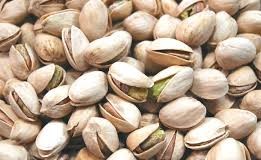
The importance of sexual health cannot be denied. Maintaining sexual health is as important as maintaining the general health of the body. The foundation of a healthy relationship is built on the sexual health of a person. Illnesses that affect the sexual health lead to undesirable consequences with respect to relationships, attitude to towards life and the general life of a person. Medical conditions like persistent sexual arousal syndrome and hypogonadism take a toll on the life of a person; hence one must be aware of them.
Persistent sexual arousal syndrome
First coined in the year 2001, the condition known as Persistent Sexual Arousal Syndrome (PSAS) can be identified through a few common characteristics:
- In spite of there being no specific activity aimed at sexual arousal, there is a psychological response similar to sexual arousal and this is of a persistent nature. The physical signs of this arousal last for a longer time and do not go away naturally
- It’s important to note that the resultant physical signs are in no way related to any kind of sexual stimulation, excitement or desire
- Very inconsequential events or factors set off such physical changes
- These physical changes do not tend to go away post orgasm. At times, multiple orgasms are required to get rid of the physical signs of the arousal
- This is a distressful condition and more often than not occurs at unwanted times. Its intrusive nature creates all sorts of problems for the individual who experiences this condition
This condition also goes by the name of Persistent Genital Arousal Syndrome (PGAS)
Hypogonadism – Symptoms in boys and men
Hypogonadism is a medical condition wherein there is a reduction in the production of testosterone. This is because of a defect in the gonads, a type of sex glands in humans, which secrete this hormone. There are two types of hypogonadism, namely, primary and central hypogonadism. In the former, there is a problem with the functioning of the testes, while in the latter; there is a problem with the functioning of those brain centers that control the gonads.
In boys, the symptoms might manifest themselves in the form of reduced maturity levels. Their genitalia might also display signs of reduced growth. Also, there will be very little or no hair growth on the face, chest, pubic region, legs and underarms. Even when the boy grows to be a teenager, he still will look like he isn’t past puberty. In men, the symptoms will be characterized by a distinctive lack of muscles. Men might also display various symptoms associated with sexual dysfunction like impotence, decreased libido, and low amount of ejaculation. Other symptoms include fatigue, weakness, minimal body hair and breast like formation due to accumulation of fat.
Tips for sexual health
Here are a few tips for men that will help keep their sexual health in order:
- A healthy diet can make a great deal of difference to a man’s sexual performance. The diet will provide the necessary nutrients for the upkeep of his sexual system
- A regular exercise routine will keep the body, including the sexual organs in good physical shape. It will also keep sexual problems at bay
- Try managing a problem and let them not manage your life. Stress, is a prime contributor to sexual problems. Stay away from it and learn to tackle stress
- A reduction in alcohol intake and smoking will go a long way in improving sexual health. Studies have proven that the habit of smoking could lead to sexual dysfunction. Alcoholics tend to suffer from problems like erectile dysfunction
- Performing exercises that focus on the pelvic region will help keep it in ship shape. This will help build up strength and thus increase the levels of pleasure
At the end of the day, no tip can be better than maintaining an attitude that is positive and proactive. It will improve your sexual health, more than any other tip.

Source by Aderline Jane
How do the authorities combat the trade in falsified medications
 Vitamin Agent The Health & Naturalistic Source
Vitamin Agent The Health & Naturalistic Source





